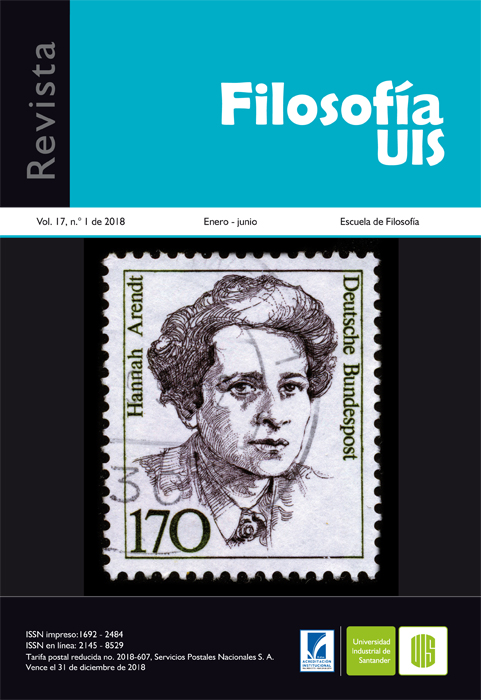Articles
Philosophy of the environment and dignity, why call our culture to an ecological conversion?
Published 2018-05-16
Keywords
- world,
- religion,
- otherness,
- other,
- freedom
How to Cite
Chavarriaga Tróchez, R. A. (2018). Philosophy of the environment and dignity, why call our culture to an ecological conversion?. Revista Filosofía UIS, 17(1), 317–325. https://doi.org/10.18273/revfil.v17n1-2018015
Copyright (c) 2018 Revista Filosofía UIS

This work is licensed under a Creative Commons Attribution 4.0 International License.
Abstract
This academic paper is a philosofical proposition for an ecological conversion with the support of: A new environmental religiosity, an ethic of care and human alterity as reason of ends and not means. The article suggests the change of attitude towards nature, because a large part of humanity has lost communion with nature, and has changed its image of the world, which it treats as an entity for use and waste.
Downloads
Download data is not yet available.
References
Boff, L. (2002). El cuidado esencial: ética de lo humano, compasión por la Tierra. Madrid: Trotta.
Dussel, E. (1984). Filosofía de la liberación. Bogotá: USTA.
Francisco I (2015). Carta Encíclica. Laudato Sí. Sobre el cuidado de la casa común. Recuperado de goo.gl/HF8pJr
Heidegger, M. (2010). Caminos de bosque. Madrid: Alianza Editorial.
Marquinez Argote, G. (1987). Filosofía de la religión. Bogotá: USTA.
Dussel, E. (1984). Filosofía de la liberación. Bogotá: USTA.
Francisco I (2015). Carta Encíclica. Laudato Sí. Sobre el cuidado de la casa común. Recuperado de goo.gl/HF8pJr
Heidegger, M. (2010). Caminos de bosque. Madrid: Alianza Editorial.
Marquinez Argote, G. (1987). Filosofía de la religión. Bogotá: USTA.
